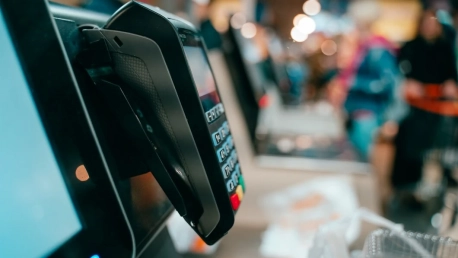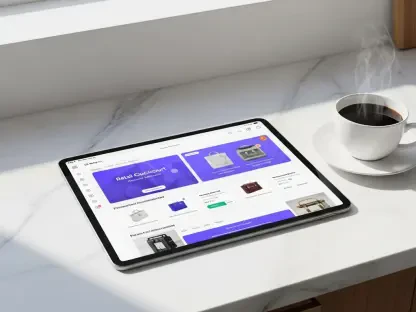In today’s rapidly evolving commerce sector, Point of Sale (POS) systems stand as the linchpin of business operations, deftly managing payment transactions, enhancing customer service, and forging essential bank connections. These systems are more than mere transactional tools; they symbolize the amalgamation of technology and customer experience. An effective POS system can streamline sales, inventory tracking, and data analytics, offering entrepreneurs a comprehensive understanding of their business landscape.
Understanding the Multi-POS System Strategy
Diving into the strategic decision of integrating multiple POS platforms, business owners like Ashley Jones of Tones of Melanin adopt a multifaceted approach to serve their client base effectively. This not only allows for the accommodation of varied payment preferences but also leverages the distinct advantages each system has to offer. To remain competitive and customer-centric, entrepreneurs are embracing this trend to curate an eclectic but cohesive payment ecosystem.
Merchant Experiences with POS Diversity
Entrepreneurs such as Katya Varbanova intertwine systems like Stripe and PayPal within their payment infrastructure. This combination caters to those who prioritize direct processing as well as individuals who lean towards the security of familiar intermediaries. The cross-section of business owners reflects a consensus that customer trust can significantly sway POS system deployment, with the overarching aim of providing a sense of reliability and choice to consumers.
Catering to Customer Preferences Through POS Selection
In order to meet the myriad of customer expectations, a diverse POS offering becomes critical. Businesses retain recognizable platforms such as PayPal alongside processing giants like Stripe to ensure a sense of familiarity and security for their clients. The underlying theme is clear: customer preferences are pivotal, with established trust in certain systems often dictating the mode of transaction.
Key Factors in Selecting the Right POS System
Transparency and the comprehensive understanding of fees dictate the selection of the appropriate POS system. With transaction charges often entailing a percentage-based fee plus a flat rate, businesses must navigate these waters carefully. The decision becomes a strategic one, where cost efficiency intersects with the features and reliability expected of the system.
Balancing Fees with Functional Needs
POS platforms like Shopify and Square present variable fee structures, with entrepreneurs weighing these against the functionality offered. The trade-off is evident as business owners search for a system that aligns financial prudence with operational efficacy. Thus, the quest for equilibrium between expenses and system capabilities becomes a critical endeavor in the POS journey.
Reputation and Trustworthiness: The Customer Perspective
Customers’ devotion to particular payment processors such as PayPal proves compelling for merchants making choices about POS systems. A trustworthy POS solution can imbue consumers with confidence and foster loyalty, considerations that are top-of-mind for entrepreneurs who aim to align their payment infrastructure with customer inclinations.
Equipment Requirements and Scalability Concerns
From sleek, handheld card readers to full-fledged kiosks, the hardware accompanying POS systems must integrate seamlessly into a business’s scope and ambiance. The imperative of scalability looms large, with businesses evolving from fledgling startups to established entities, necessitating a POS system that grows in tandem with their trajectory.
Selecting Equipment to Suit Business Scale
The distinction between opting for compact card readers and larger POS kiosks lies in the scale and nature of the business. As companies expand, the need for sophisticated hardware arises, allowing them to accommodate increased customer flow and complex transactions. Entrepreneurs must therefore anticipate growth and choose equipment that aligns with future demands.
Subscription Options and Software Sophistication
As businesses burgeon, the adaptability of POS subscriptions and software sophistication becomes increasingly vital. Companies such as Shopify and Stripe cater to this necessity with scalable subscription models, ensuring that their services evolve congruently with business growth, mirroring the escalating complexity of transactions and customer management.
Additional Considerations for a Holistic POS Experience
A holistic POS system transcends mere transaction processing, encapsulating features like swift fund transfers and app integration. Equally significant is a fair approach to chargeback management, where the equilibrium between merchant rights and consumer protection is meticulously balanced.
Speed and Integration in Daily Operations
Rapid fund transfers catalyze business fluidity, impacting daily operations and cash flow efficiencies. The synergy between a POS system and its app ecosystem can streamline processes, creating a seamless workflow that fortifies the foundation of business operations.
Chargeback Management: Finding the Middle Ground
Navigating the delicacies of chargeback resolutions, business owners seek POS systems adopting a balanced approach. While Stripe is often lauded for its impartiality, PayPal’s consumer-centric model raises concerns among merchants. Thus, entrepreneurs strive to find a POS partner that assures equitable outcomes for both parties.
The Recommended Payment Processors from Business Owners
Amid a plethora of options, business owners recommend a host of payment processors, each boasting unique capabilities. The nuances of these recommendations shed light on the diverse considerations and priorities held by entrepreneurs in selecting their POS systems.
Highlighting Top Contenders and Their Key Attributes
Stripe stands out with its transparent fee structure and robust functionalities, including the handling of recurring payments. Equally commendable is Shopify with its rich ecosystem and all-in-one service suite, despite some merchants raising concerns over occasional payment holds.
Understanding Differentiators in Hardware and Services
Distinguishable industry-specific tools and advanced capital options make Clover a favorable choice for niche businesses. Square’s holistic suite extends from hardware to payroll, marketing, and fresh AI integrations. Meanwhile, PayPal’s esteemed customer trust continues to boost sales, despite some delays in merchant payouts.
The Underlying Consensus Amongst Entrepreneurs
The consensus among today’s business owners underscores the indispensability of including customer-trusted systems like PayPal to maximize sales. Ultimately, the optimal POS system selection is intricately tied to the unique demands of a particular business and its clientele.
Compatibility and Flexibility: Tailoring to Business Needs
Entrepreneurs meticulously scout for the POS system that is most compatible with their operational modus operandi. The flexibility to adjust swiftly to market shifts and customer feedback is integral to the long-term success of their POS infrastructure.
Responsiveness to Market and Customer Dynamics
An effective POS system not only responds adeptly to market trends but also resonates with customer dynamics. It embodies the delicate art of blending user experience with technological prowess, forming the backbone of an adept and agile business.









